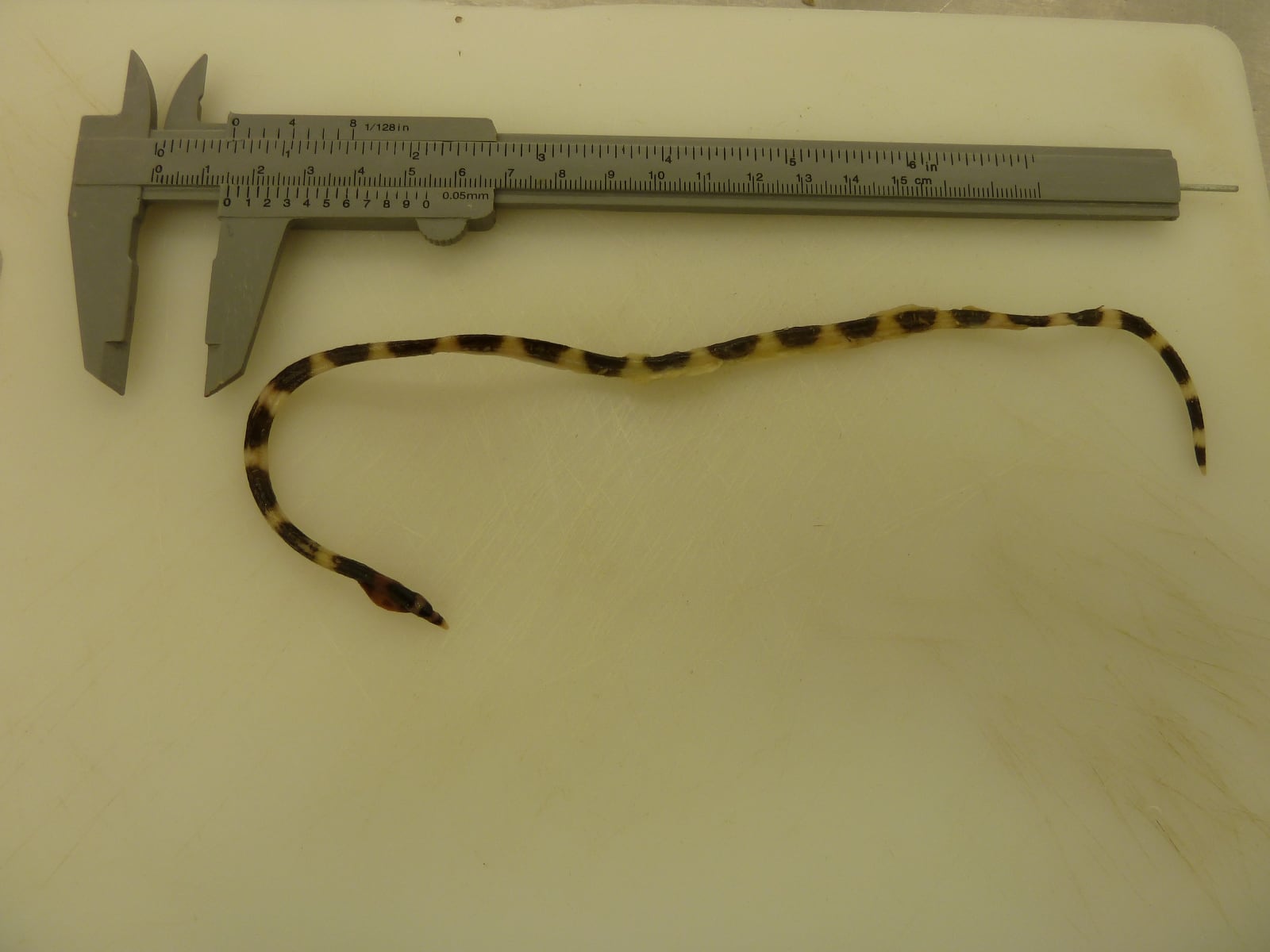Scientists discover snake eels can burst through predator’s stomach

LIKE A SCENE out of Ridley Scott’s Alien, scientists have discovered that snake eels, after being swallowed, are able to burst through their predator’s stomach.
According to a new paper, published in Memoirs of the Queensland Museum- Nature, which describes the bizarre behaviour, the eels use their hard pointed tail tip to pierce the stomach wall.
Unfortunately, this doesn’t result in their escape. Queensland Museum ichthyologist Jeff Johnson explains, “They usually come out to feed at night and are predated on by a large range of predatory fishes.
“They are swallowed whole and once inside the stomach of the predator are able to use their hard pointed tail tip to burst out through the stomach wall.
“Unfortunately for them, they are often not able to further penetrate the outer wall of the gut cavity, so become trapped and eventually die there. In that area they become ‘mummified’ or preserved inside the gut cavity. “

The scientists were made aware of the behaviour when curious fishermen brought specimens to the Museum with what was thought to be a fish with a large parasitic worm attached, but Jeff has also witnessed the behaviour firsthand.
Seven species of snake eels were found inside 11 species of predatory fish, leading the authors of the paper to believe that the crafty escape process is widespread.
“This process is bizarre, but our research indicates that it is not rare,” Jeff says. “It is likely that other species of snake eels will also be involved and many more species of predators will be involved in eel penetrations.
“This is the first record of this process in Australian waters, but we expect that with further research and inquiry we may be able to more fully determine how widespread it is and how often it happens.”

